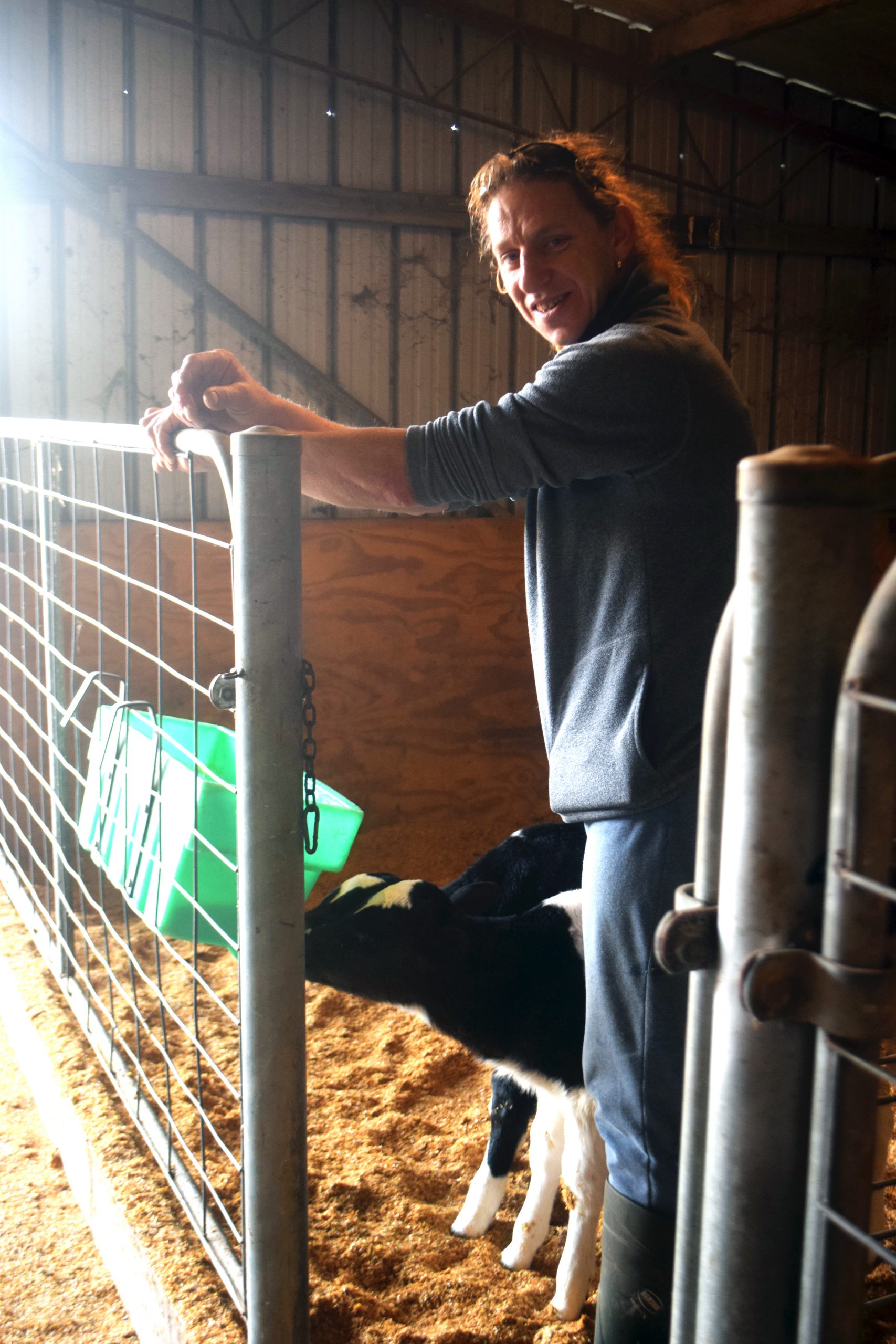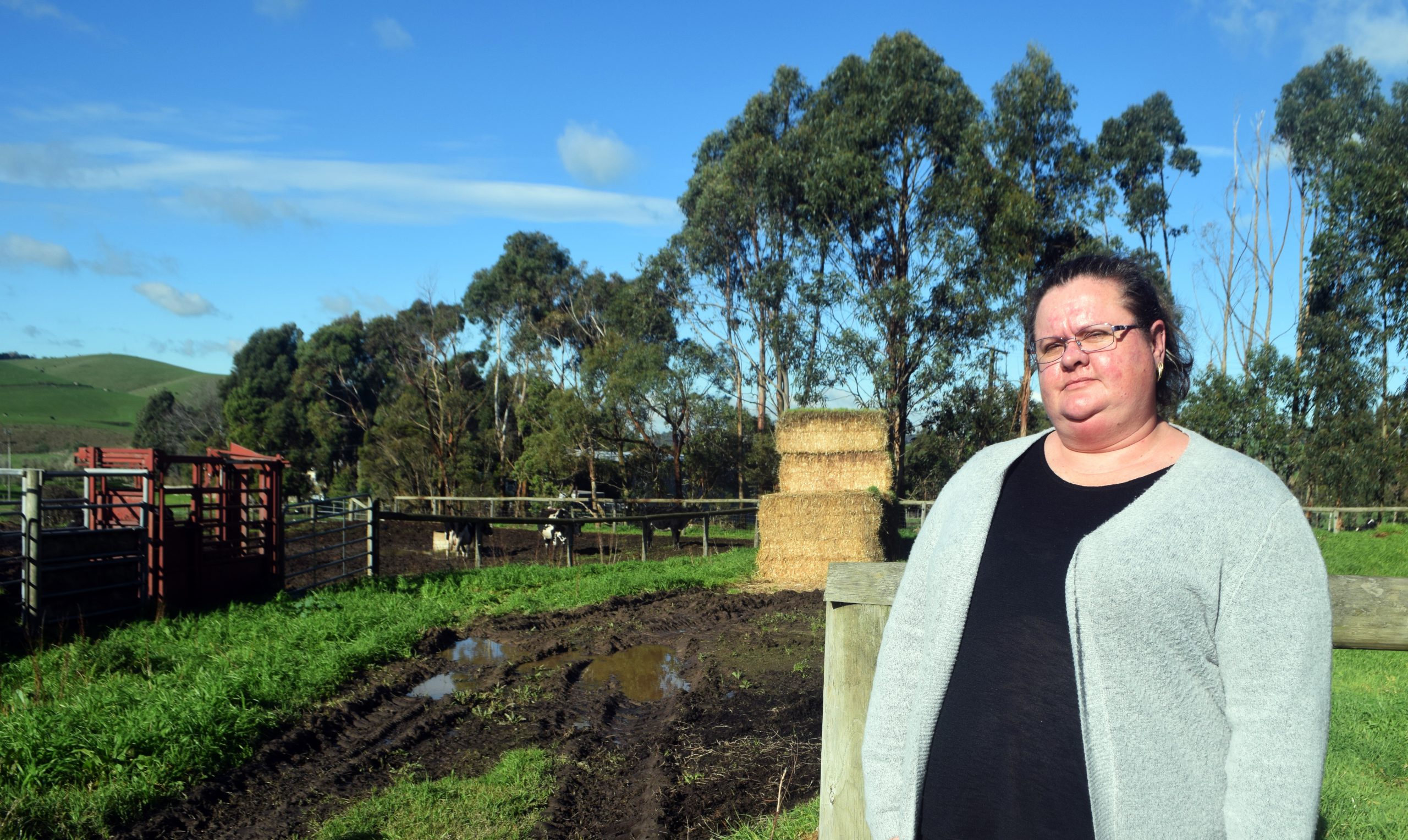By Emma Watson
There is a sense of beauty when driving through the rolling country hills to Kongwak.
When you see the green pastures, breathe in the fresh air and take in magnificent views, you understand why the Stark family moved to the area 13 years ago.
Amy and Dale Stark have been involved in the dairy industry for about 11 years, and started their own venture in 2010.
In a good season their 185-acre farm would peak at 120 cows producing between 300,000 and 350,000 litres of milk. Neither Amy nor Dale would have to look for extra work.
“We don’t live an extravagant lifestyle, but in a good season we can pay our bills and I can feed the family, we can have the odd day out,” Amy said.
Amy and Dale have three children, aged four, 13 and 16. Amy says life as a dairy farmer gives her the flexibility to visit kinder or spend that time with her children throughout the day.
She concedes dairy farming is hard work – roughly 70 to 80 hours a week – but the job satisfaction of rearing calves that recognise you when they go into the herd makes it all worthwhile.
“It is an awesome industry and… it’s a lifestyle, so to speak,” Amy said.
“But apparently, that’s all we need. You enjoy the lifestyle and enjoy the job and apparently that’s enough. That’s the way it feels anyway, at the moment. But, no regrets.”
Times are tough for the Stark household.
In September Amy was diagnosed with Hashimoto’s disease, an autoimmune condition that leaves her fatigued, causes severe joint pain and has essentially stopped her metabolism.
She has been told not to stress, to look after herself. So the family planned to hire help for her husband on the farm while Amy recovered.
But then the milk prices dropped.
“If I wasn’t sick, with the way things are right now I’d be going out to get extra work,” she said.
“I’d work off a farm, but I can’t; I’m no use to anybody.
“By lunchtime I’m ready to go back to bed; the fatigue is debilitating, it’s just something I can’t do at the moment, so it puts more strain on everything else.”
The Murray Goulburn suppliers are now looking at ways to survive their farm over the next 12 to 18 months, which Amy predicts could be dire.
She’s trying to access the supports made available in the wake of drastic price drops, but says the industry as a whole needs to change.
“We deserve to be able to make an income,” she said.
She has taken comfort in the creation of a locally-grown drive, Gippsland Farmer Relief, which is working to help Gippsland farmers with information about services, access to donated stock feed and provision of food parcels.
She said the group had achieved a lot in its short life and hoped its volunteers were successful in all they set out to do.
In the meantime, as Amy awaits a “more reasonable bottom line”, she urged the broader community to think about where their dairy products came from.
“Just don’t take it for granted; spend that little bit more on buying your milk and just try and support the branded products,” she said.
“Just be aware and know that we struggle to give you what you need. It’s not the consumers’ fault at the end of the day, but the system’s wrong.
“I think if people just keep up with their support, and it doesn’t have to be money… at the end of the day we will have a more pleasing outcome.”
For more information about GFR search for the ‘Gippsland Farmer Relief Drive’ on Facebook.
To donate to the drive, visit its online crowd funding page at
www.gofundme.com/27t38ak












